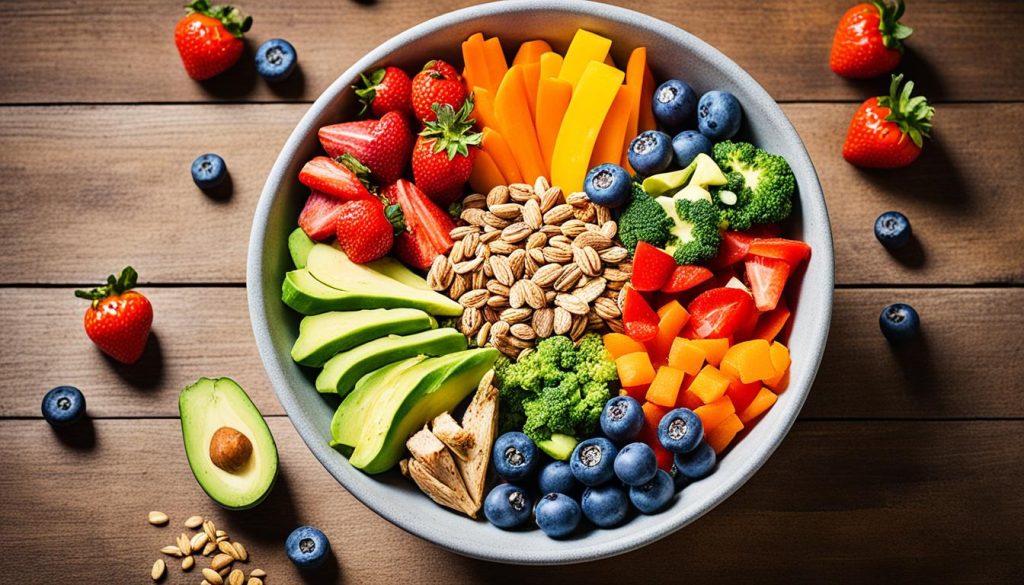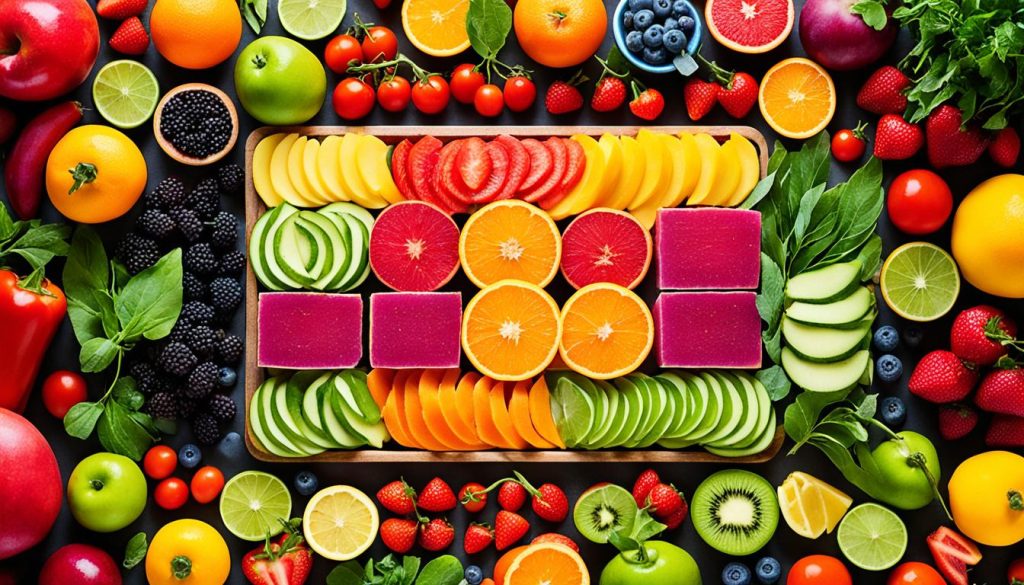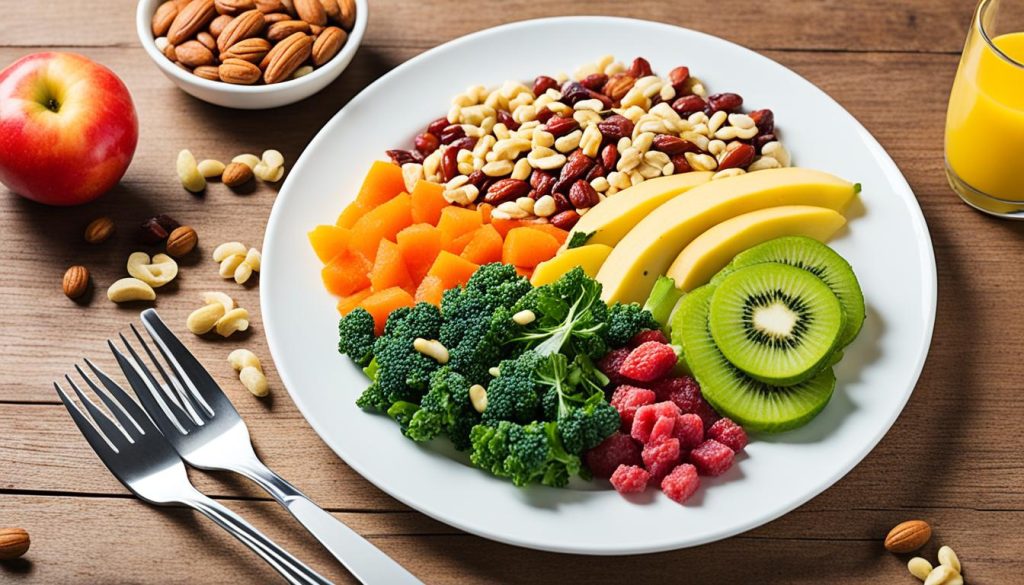Are you looking to improve your health and well-being? Consider adopting a sugar free diet. According to the World Health Organisation, added sugars should not make up more than 5% of our daily energy intake.
This translates to about 30g a day for individuals aged 11 and older. Unfortunately, consuming excess sugar has been linked to various health conditions such as obesity, diabetes, heart disease, and high blood pressure. By embracing a sugar free diet, you can reduce the risk of these health issues and pave the way for a healthier lifestyle.
Embracing a sugar free lifestyle is a choice that can positively impact your overall health and well-being. While it may take some time and effort to adjust, the benefits are truly worth it. Explore sugar free recipes, find healthier alternatives to satisfy your sweet tooth, and remember that moderation is key. Take control of your health and make the decision to embrace a sugar free diet today!
Sugar Free Diet Benefits
Cutting out sugar from your diet can have numerous benefits. By adopting a sugar free diet, you can improve your energy levels, stabilize mood swings, promote weight loss, enhance dental health, reduce inflammation in the body, lower the risk of chronic diseases such as diabetes and heart disease, and improve overall skin health. Additionally, a sugar free diet can have positive effects on mental clarity and concentration.
Removing sugar from your daily routine can be challenging, but the health benefits are well worth it. Not only does a sugar free diet help you avoid the negative effects of excess sugar consumption, but it also supports your overall well-being. Say goodbye to energy crashes, mood swings, and sugar-related health issues by embracing a sugar free lifestyle.

One of the key benefits of a sugar free diet is improved energy levels. When you cut out sugar, you eliminate the spikes and crashes that come with consuming high amounts of sugary foods and drinks. Instead, your energy levels become more stable throughout the day, allowing you to maintain focus and productivity.
In addition to energy levels, stabilizing mood swings is another advantage of a sugar free diet. Consuming excess sugar can lead to fluctuations in blood sugar levels, which can result in irritability, mood swings, and even depression. By eliminating sugar, you can experience a more balanced mood and improved emotional well-being.
A sugar free diet is also effective for weight loss. Many sugary foods and beverages are high in calories and provide little to no nutritional value. By cutting out these empty calories, you can create a calorie deficit, which is essential for weight loss. Additionally, reducing sugar consumption can lower insulin levels, allowing your body to burn stored fat more efficiently.
Improved dental health is another advantage of a sugar free diet. Sugar is a leading cause of tooth decay and can lead to various oral health problems. By eliminating sugar, you reduce the risk of cavities and gum disease, promoting better overall dental health.
Reducing inflammation is another significant benefit of cutting out sugar. Excess sugar consumption has been linked to chronic inflammation in the body, which can contribute to the development of various health conditions including heart disease, diabetes, and certain cancers. By adopting a sugar free diet, you can lower inflammation levels and reduce the risk of these chronic diseases.
Furthermore, a sugar free diet can have positive effects on your skin health. Consuming high amounts of sugar can contribute to skin issues such as acne, wrinkles, and dullness. By eliminating sugar, you can achieve clearer, healthier, and more vibrant skin.
Sugar Free Diet Food List
When following a sugar-free diet, it’s important to focus on whole, unprocessed foods that will nourish your body. Here is a handy sugar-free diet food list to help you make healthier choices:
Fruits and Vegetables
- Incorporate a variety of fresh fruits and vegetables into your diet. They provide essential vitamins, minerals, and fiber without added sugars.
- Choose berries, apples, oranges, kiwis, leafy greens, broccoli, and bell peppers to add nutrition and flavor to your meals.
Lean Proteins
- Include lean protein sources such as chicken breast, turkey, fish, tofu, and Greek yogurt in your sugar-free diet.
- Proteins help build and repair tissues, keep you fuller for longer, and are essential for various bodily functions.
Whole Grains
- Opt for whole grain options like brown rice, quinoa, oats, and whole wheat bread instead of refined carbohydrates.
- Whole grains provide more fibre and nutrients compared to their refined counterparts.
Healthy Fats
- Incorporate healthy fats into your sugar-free diet, such as avocados, nuts, seeds, olive oil, and coconut oil.
- These fats provide essential nutrients, promote brain health, and support overall well-being.

Avoid foods that are high in added sugars, such as candies, cookies, sodas, and processed snacks. These items not only contribute to weight gain but also increase the risk of health issues associated with excessive sugar consumption. Be mindful of hidden sugars in condiments, sauces, and packaged foods. Read food labels carefully to ensure you’re making sugar-free choices.
Remember, adopting a sugar-free diet doesn’t mean sacrificing taste or enjoyment. With creativity and exploration, you can create delicious and satisfying meals using the ingredients from this sugar-free diet food list. Start your journey to a healthier lifestyle today!
Sugar Free Diet Recipes
A sugar free diet doesn’t mean giving up delicious and satisfying meals. There are plenty of recipes and meal ideas that are free from added sugars. Incorporating these sugar free recipes into your diet can help you maintain a healthy lifestyle and meet your nutritional needs.
Start your day with a refreshing sugar free smoothie made with a variety of fruits and vegetables. Blend together some spinach, strawberries, avocado, and almond milk for a nutritious and tasty morning treat.
For a filling and wholesome breakfast, try sugar free oatmeal topped with fresh berries. Cook your oats in water or unsweetened almond milk, and add a sprinkle of cinnamon for extra flavor. Top it off with a handful of blueberries or raspberries for a burst of sweetness.
When it comes to lunch and dinner, there are numerous options for sugar free meals. Create a colorful salad with mixed greens, cherry tomatoes, cucumber, grilled chicken, and a homemade dressing made with olive oil, lemon juice, and herbs.
For a satisfying dinner, enjoy a sugar free grilled chicken breast with a side of roasted vegetables. Season your chicken with herbs and spices, and grill it to perfection. Roast a medley of bell peppers, zucchini, and sweet potatoes for a flavorful and nutritious accompaniment.
Remember to experiment with different ingredients and flavors to make your meals enjoyable. Roasting or grilling vegetables can bring out their natural sweetness, while herbs and spices can add depth of flavor without the need for added sugars.
Feel free to get creative in the kitchen and tailor these sugar free recipes to your taste preferences. With a little imagination, you can create a variety of delicious and nutritious meals that align with your sugar free diet.

Sugar Free Diet Plan
If you’re looking to start a sugar free diet, having a well-structured plan can be incredibly helpful. Planning ahead and knowing what to eat can make it easier to navigate your new lifestyle and make healthier choices. Here’s a 5-day sugar free diet plan to get you started:
Day 1
- Breakfast: Avocado and spinach omelette
- Lunch: Grilled chicken salad with mixed greens and a sugar-free dressing
- Dinner: Baked salmon with steamed broccoli and quinoa
- Snacks: Sugar-free yogurt with berries, raw nuts
Day 2
- Breakfast: Sugar-free smoothie made with almond milk, spinach, and berries
- Lunch: Turkey lettuce wraps with avocado and tomato
- Dinner: Vegetable stir-fry with tofu and brown rice
- Snacks: Carrot sticks with hummus, sugar-free protein bar
Day 3
- Breakfast: Sugar-free overnight oats with almond milk and chia seeds
- Lunch: Quinoa salad with roasted vegetables and a lemon vinaigrette
- Dinner: Grilled chicken breast with roasted sweet potatoes and asparagus
- Snacks: Sugar-free peanut butter with apple slices, celery with cream cheese
Day 4
- Breakfast: Vegetable frittata with a side of sugar-free baked beans
- Lunch: Tuna salad lettuce wraps with cucumber and avocado
- Dinner: Spaghetti squash with turkey meatballs and marinara sauce
- Snacks: Greek yogurt with chopped walnuts, sugar-free popcorn
Day 5
- Breakfast: Smoked salmon and cream cheese on whole grain toast
- Lunch: Chickpea salad with mixed greens, cherry tomatoes, and a sugar-free dressing
- Dinner: Beef stir-fry with broccoli, bell peppers, and cauliflower rice
- Snacks: Hard-boiled eggs, sugar-free dark chocolate squares
Remember that the key to a successful sugar free diet plan is to gradually reduce your sugar intake and be mindful of hidden sugars in processed foods. Start by cutting out sugary drinks and snacks, and gradually eliminate other sources of added sugars from your diet. With time, you’ll adjust to your new sugar free lifestyle and enjoy the many benefits it brings.

Sugar Free Diets for Weight Loss
Many people turn to sugar free diets for weight loss. By eliminating added sugars, you reduce your calorie intake and improve your body’s ability to burn fat. However, it’s important to note that weight loss is not guaranteed solely by cutting out sugar. It’s essential to maintain a balanced diet, engage in regular physical activity, and make other healthy lifestyle choices. A sugar detox can jumpstart your weight loss journey and help you break free from sugar cravings.
When you eliminate sugar from your diet, you eliminate empty calories and reduce the risk of weight gain associated with sugar consumption. Added sugars are often found in processed foods and beverages, so by cutting them out, you naturally consume fewer calories. This calorie deficit can contribute to weight loss over time.
However, it’s important to remember that weight loss is a complex process influenced by various factors such as genetics, metabolism, and overall lifestyle. Simply cutting out sugar is not a guarantee of losing weight. The key to successful and sustainable weight loss is adopting a holistic approach.
A sugar free diet should be combined with a balanced and nutritious eating plan that includes a variety of whole foods such as fruits, vegetables, lean proteins, and healthy fats. Regular physical activity is also crucial for weight management and overall well-being.
Moreover, making other healthy lifestyle choices such as getting enough sleep, managing stress levels, and staying hydrated can further support your weight loss efforts.
Implementing a sugar detox can be beneficial for jumpstarting your weight loss journey. A sugar detox involves eliminating all forms of sugar from your diet for a certain period, allowing your body to reset and break free from cravings. This can help you establish a healthier relationship with sugar and promote better eating habits.
Remember, always consult with a healthcare professional or a registered dietitian before making significant changes to your diet or embarking on a sugar free diet for weight loss. They can provide personalized guidance and ensure you meet your nutritional needs while achieving your weight loss goals.
Conclusion
Embracing a sugar-free lifestyle can have a positive impact on your overall health and well-being. By cutting out added sugars from your diet, you can reduce the risk of various health issues, including obesity, diabetes, and heart disease. While it may take some time and effort to adjust to a sugar-free diet, the benefits are definitely worth it.
Don’t be afraid to explore sugar-free recipes and experiment with different meal ideas. There are plenty of delicious options available that can help you satisfy your cravings without compromising your health. Additionally, finding healthier alternatives to sugar-laden desserts and snacks is key to maintaining a balanced lifestyle.
Remember that moderation is key. While it’s important to embrace a sugar-free diet, occasional indulgences in sugar-free desserts or snacks can still be enjoyed guilt-free. Take control of your health and make the choice to prioritize your well-being by adopting a sugar-free lifestyle today.
FAQs
What are the benefits of a sugar free diet?
A sugar free diet can help improve energy levels, stabilize mood swings, promote weight loss, enhance dental health, reduce inflammation in the body, lower the risk of chronic diseases such as diabetes and heart disease, and improve overall skin health. It can also improve mental clarity and concentration.
What foods should I include in a sugar free diet?
When following a sugar free diet, it’s important to focus on whole, unprocessed foods. Include plenty of fruits and vegetables, lean proteins, whole grains, and healthy fats such as avocados and nuts.
What foods should I avoid on a sugar free diet?
Avoid foods that are high in added sugars such as candies, cookies, sodas, and processed snacks. Be mindful of hidden sugars in condiments, sauces, and packaged foods. Choose low-sugar alternatives and read food labels to ensure you’re making sugar-free choices.
Are there any sugar free recipes available?
Yes, there are plenty of sugar free recipes and meal ideas that are delicious and satisfying. Some examples include sugar free smoothies made with fresh fruits and vegetables, sugar free oatmeal topped with berries, sugar free salads with homemade dressings, and sugar free grilled chicken with roasted vegetables. Get creative in the kitchen and experiment with different ingredients and flavours to make your meals enjoyable.

